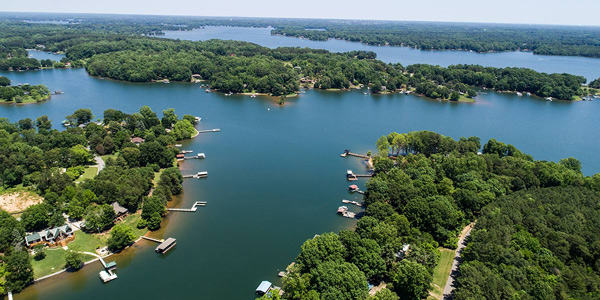By Rich Heidorn Jr.
FERC adequately explained why it limited Duke Energy Carolinas to a 40-year extension on the Catawba-Wateree hydro project, the D.C. Circuit Court of Appeals ruled Tuesday.
Duke had sought a new 50-year license for the project, which includes 11 developments on hundreds of miles of the Catawba and Wateree Rivers in North Carolina and South Carolina; its original 50-year license expired in 2008. The commission issued the 40-year license in 2015, concluding that construction and environmental measures under the new license were “moderate” (Project 2232-522).
The company asked the court to overturn the ruling, arguing it was similarly situated to applicants that had received 50-year extensions, making the commission’s order “arbitrary and capricious.”
The court declined to second guess the commission, noting the “narrowly circumscribed” role for the courts in ruling on hydro matters. “According due deference to the commission’s expertise in determining whether measures under a license are moderate or extensive and to its interpretation of its precedent and policy choices, we deny the petition for review,” it wrote (16-1296).
The commission generally issues a 30-year license for projects with “little or no” new development, capacity, or environmental mitigation; a 40-year license for projects requiring “moderate” investments; and a 50-year license for projects involving “extensive” measures.
Duke applied for a new license after reaching an agreement with 70 entities that specified measures it would take under a renewal.
In its request for rehearing, Duke argued that FERC had failed to consider the costs of its investments, saying it had spent about $54 million on construction required by the agreement and $111 million in other relicensing costs.
FERC responded it does not rely on a “a strictly quantitative analysis” because “cost estimates can fluctuate widely over time.” It also said Duke’s cost data were “not reliable.”
“In response to commission staff’s request to simply update the cost estimates … Duke Energy instead filed new estimates — unsupported by any explanation,” the commission said, noting the company included a $40 million gate instead of the $10 million bladder dam called for in the license order.
The court cited FERC’s observation that Duke had not claimed it could not recoup its costs within 40 years.
“Further, the commission noted that some of Duke Energy’s cost estimates were not fully supported, or were inconsistent with the new license, because it was unclear that all the enhancement and mitigation measures are new measures. Duke Energy’s effort to avoid the plain meaning of the staff request to update the cost estimates is unpersuasive; as license applicant it had every incentive to explain the basis for its cost estimates and it cannot prevail by shifting the burden of clarification to the commission,” the court said.







